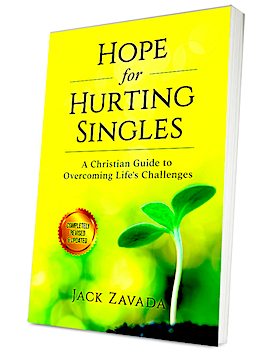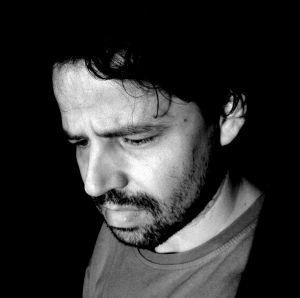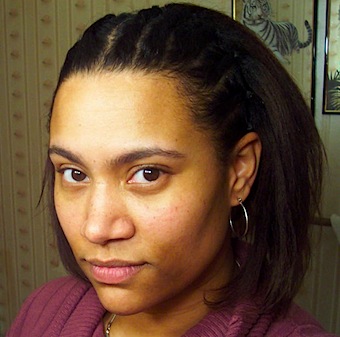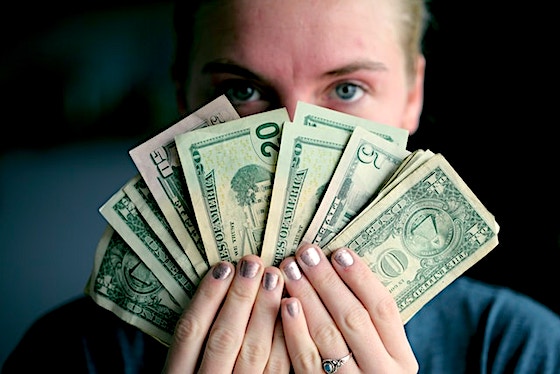
Shocker: Money can't actually solve all your problems
Here's the shocking truth about money: It can't magically solve all your problems.
Now the world doesn't want you to believe that. It holds money out as the standard for success. It says if you're on the list of the wealthiest people, then you deserve to be admired.
But that's a narrow way of looking at things, isn't it? If riches are the yardstick, the athlete who makes $30 million a year would be more successful than the first grade teacher who teaches children to read and makes $30,000 a year. The CEO who makes $20 million a year would be more worthwhile than a nursing home worker who makes $25,000 a year.
As for solving problems, look at how messed up rich celebrities are. The best therapists they can find don't seem to be able to help them, nor do their mansions and luxury cars.
Did I hear that right?
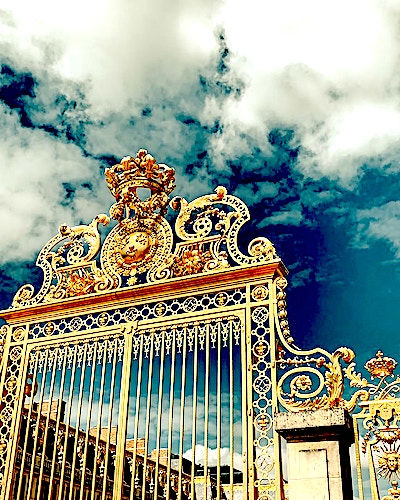
You don't hear this in sermons, but it's another shocking truth:
There is no money in heaven. None. Not one cent.
People will not be rewarded in heaven for how much they earned in life, but for how much they helped other people.
Imprint that truth in your mind and never forget it: There is no cash in heaven.
Jesus Christ was realistic. He didn't deny that we need an income to live. His foster father, Joseph, worked as a carpenter and supported his family. Joseph needed to buy food, lamp fuel, clothing, and other necessities.
Jesus recognizes this need. He just doesn't want us to become obsessed with it.
When we think about acquiring wealth more than we think about God, we turn money into our god, and break the First Commandment: "I am the Lord your God. You shall not place other gods before me."
Someone noticed that in the Gospels, Jesus spoke about money much more often than he did about heaven. That's because money is such a big part of our lives and can become one of our biggest problems.
Ok, money can solve these problems...
All right, I'll admit that money can solve some of your problems. It can pay for the things you can't live without, like food, health care, a place to live, utilities, and a car to take you to work.
When you go over your budget and find you don't have enough for even the bare necessities, it's time to look for a higher paying job or get more education so you qualify for a higher paying job.
(Jack's Iron-clad Rule: Never quit one job until you have another job lined up and waiting for you!)
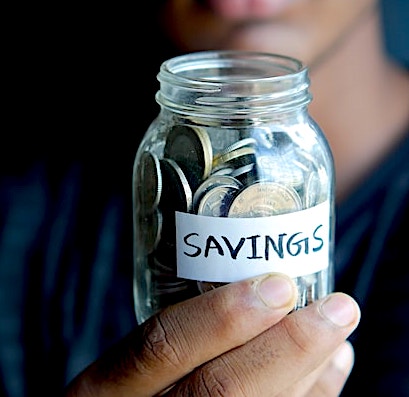
God wants us singles to be wise stewards of our finances. When we are, we find we have more money than we thought.
I know about this fellow single. I have been broke. During a recession I was once out of work for 18 months. That's when I learned the wisdom of an emergency fund.
It's hard, very hard to live beneath your means. That requires spending less money than you bring in. It takes whittling down and eliminating credit card debt.
When your life is miserable, you sometimes do things to try to relieve the pain. Ironically, you may even buy things to lessen the pain of being broke, pushing you even deeper into debt.
Don't use shopping for anesthesia!

My late brother Dave had an interesting term for feel-good purchases. He called them "anesthesia."
His theory was that the crummier a person's life is going, the more they try to fix it with these anesthetic purchases. They're a way of numbing inner pain.
And we singles are especially vulnerable. We have a bad day or a bad week, so we buy something to "reward" our self. The problem is that like real anesthetics, the numbing effect wears off after a short while. And just like people who get hooked on real painkillers, we can get hooked on these anesthetic purchases too.
There's nothing wrong with setting goals for yourself and rewarding yourself with some small item when you achieve your desire. But buying just to try to make yourself feel better seldom works.
Stores, and especially credit card companies, don't want us to think about why we buy something. They don't want us to mentally debate whether we really need it.
But once we slow down, think about it objectively, then wait a day or two or even a week before buying, we realize that we don't really need or even want that thing any more.
There are two ways to stop making anesthetic purchases. First, work on making your life more happy so you don't feel so much need to numb your pain. And second, find a reward that doesn't involve buying something. That's tough to do, but if you give it enough thought, you can figure something out.
If you're wise, at some point in your life you'll come to the conclusion that buying more stuff doesn't make you happy. When you do make that discovery, you'll make a gigantic stride toward learning what does make you truly happy.
God's desires vs ours
Please don't misunderstand me on this subject. I don't want you to live like a hermit. Wearing nice clothes, living in a comfortable home and driving a dependable car are good things.
What are God's two most important desires for us? The first is our salvation. It's so crucial he sacrificed his own Son so you and I can be forgiven for our sins and live eternally in heaven.

God's second desire for you is your sanctification. Every day he is molding your character to make you more like Jesus. The process goes faster and deeper when we surrender and cooperate.
It's a matter of priorities, isn't it? Jesus said it's very hard for a rich person to enter heaven because many of them make money their god.
But if you understand that God is god and money is only a tool, you're many steps ahead of most people.
Put God first and foremost. When you do that, your values will be right where they should be.
Debt: Are you free--or a slave?
Does living the abundant life mean God wants you to be rich?
Do you have to live in a cave to find intimacy with God?
How you can be smarter than the false promise of materialism

